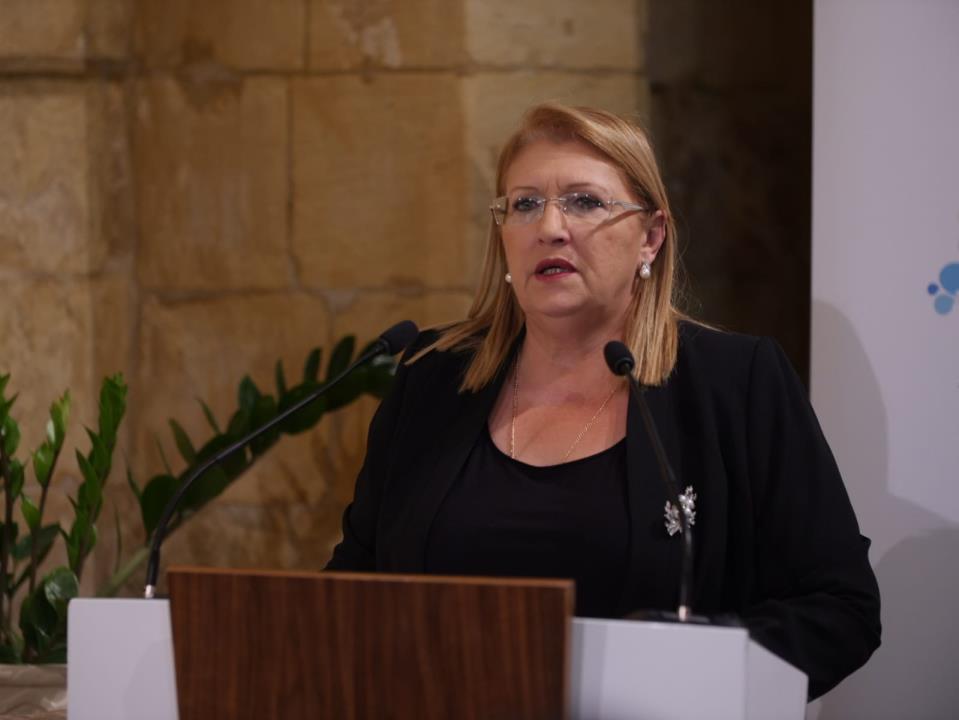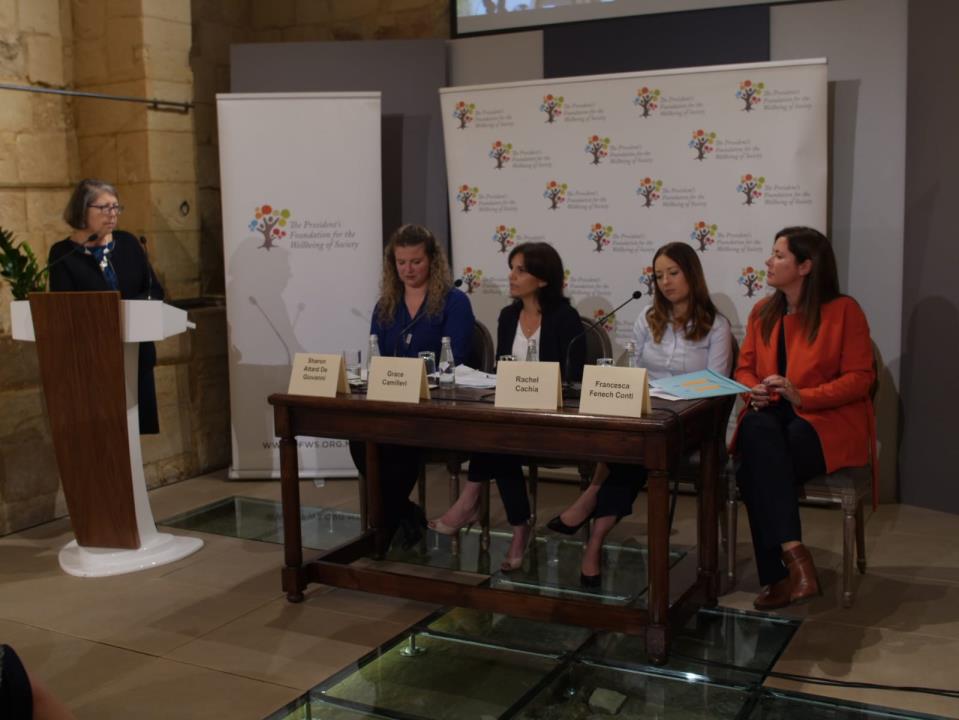Malta’s average gender pay gap between men and women stands at an average of 11%, meaning that for every €1 a man earns, a woman earns 89c, President Marie-Louise Coleiro Preca said at the launch of a video aiming to raise awareness about Malta’s gender pay gap and the factors that contribute to it.
The pay gap is more prominent than the 11% average in specific industries; a 28.3% gap was found in the financial and insurance industry, a 23.1% gap was found in professional, scientific, and technical activities, and a 20.6% gap was found in the ICT industry.
The President said that the gender pay gap was ever rising, from 7.2% in 2010 to 11% today, and that there was the need to address it now more than ever. The video launched on Monday aims to raise awareness on the gender pay gap, and is a direct result of a conference organised earlier last year, which drew the need for attention on this issue and the need to dispel the many myths surrounding it, she said.
The existence of a gender pay gap stops us from having an inclusive economy and stops the proper spreading of wealth, the President said. It does not only create gender inequality at working age but also affects women’s pensions, she continued.
The World Economic Forum found that the pay gap is the reason for a third of women’s poverty after the age of 65 in Europe, and the President said that in order to make a long term change Malta must follow the United Nations Sustainable Development Goals and their 17 points; Agenda 2030 which is a roadmap which promotes human dignity, inclusive prosperity and gender equality.

She encouraged parliament to take up this issue and effectively address it, and said that Maltese society must take a cultural leap to celebrate equality.
The gender pay gap is defined as the difference between the average gross hourly earnings of men and women, which includes overtime, bonuses, and other perks, all expressed as a percentage of the average gross of the yearly earnings of men, the foundation said upon announcement of the video.
It is not the same issue as equal pay, the foundation said; equal pay looks at whether men and women are receiving equal pay for equal work, within the same employment and at the same level. However, the gender pay gap is more complex and subtle, the foundation continued.
The project is a CSR initiative by V Squared Media, done in collaboration with EY Malta, and with the support of the Centre for Labour Studies at the University of Malta, the National Statistics Office, and empPOWer: Platform for Organisations for Women. Support and advice was also received from Icelandic MP Þorsteinn Víglundsson and the Chair of the Executive Board of Women Political Leaders in Iceland Hanna Birna Kristjánsdóttir. Iceland recently approved legislations relating to gender equality on the workplace, becoming one of the first globally to do such a thing.

The video was launched just ahead of Malta’s Equal Pay Day, which is on 18 November, which symbolically marks the day when women effectively start working for free for the rest of the year due to the gender pay gap.
A panel discussion made up of 4 women; V squared media director Rachel Cachia, EY Malta associate partner Grace Camilleri, women’s rights activist Francesca Fenech Conti, and Sharon Attard De Giovanni on behalf of the President’s Foundation for the Wellbeing of Society, followed the launch of the video.
Camilleri emphasised that conscious decisions had to be made to ensure that there is a level playing field on the workplace and that women should always have the same opportunities to advance within an organisation. The “subconscious bias” that is present must be eliminated and instead, there is the need to start talking with female employees about their career path to make sure that they reach their full potential.
Cachia said that greater participation of women at company decision-making levels needed to be promoted through supportive and transparent company structures, and by encouraging more female entrepreneurship.
Fenech Conti said that companies must be encouraged to be more gender fair and that those companies practising transparent and fair management should be showcased and promoted.